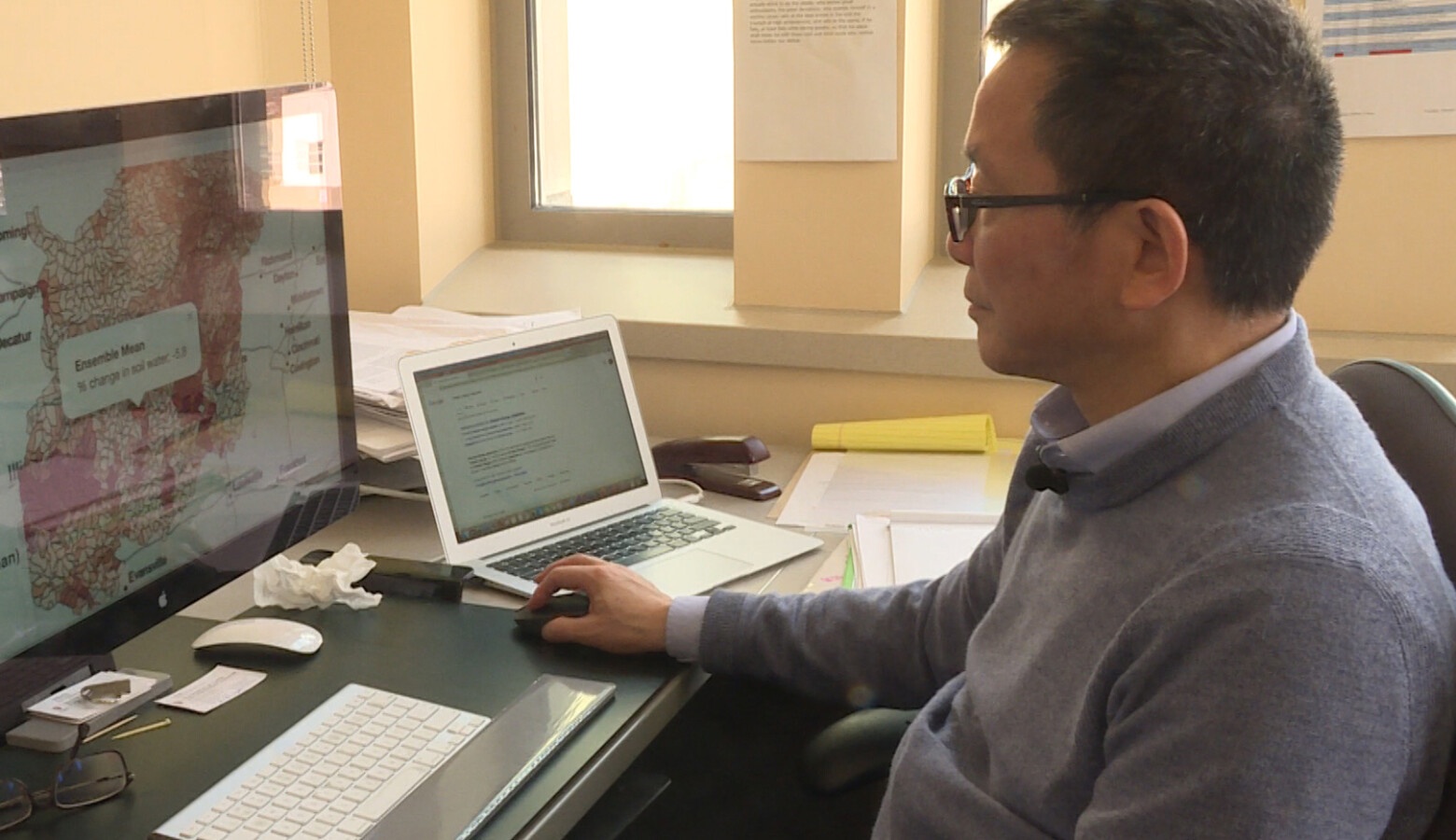Map Shows Climate Change Will Threaten Indiana’s Water Supply

Climate change is expected to threaten Indiana’s water supply. Indiana University’s Environmental Resilience Institute has developed an interactive map to help cities plan for less clean water in the future.
The mapping tool lets people see how much water cities in the Wabash River basin are projected to lose or gain in the next 30 or 60 years.
IU Earth and atmospheric sciences professor Chen Zhu is leading up the project. He says even though climate change will lead to more rain in the winter and spring, that doesn’t mean we’ll have more drinking water in Indiana.
“Our model shows that we actually have less water available in the streams and in the soil — and that’s because the temperature is higher and we will see more evaporation,” Zhu says.
That could be a big problem for Indiana farmers and rural Hoosiers who live near them. Zhu says the models show there will be less water for crops, but also more extreme rain events in the winter and spring — creating more runoff that pollutes Indiana rivers and streams.
Zhu says the tool could be used in a number of ways. It could help cities prepare for droughts or flooding. It could also help utilities decide whether or not to build power plants in an area — some of which need a lot of water to cool.
“Provide some basis for discussion for planning,” he says.
Contact Rebecca at rthiele@iu.edu or follow her on Twitter at @beckythiele.
Indiana Environmental reporting is supported by the Environmental Resilience Institute, an Indiana University Grand Challenge project developing Indiana-specific projections and informed responses to problems of environmental change.
